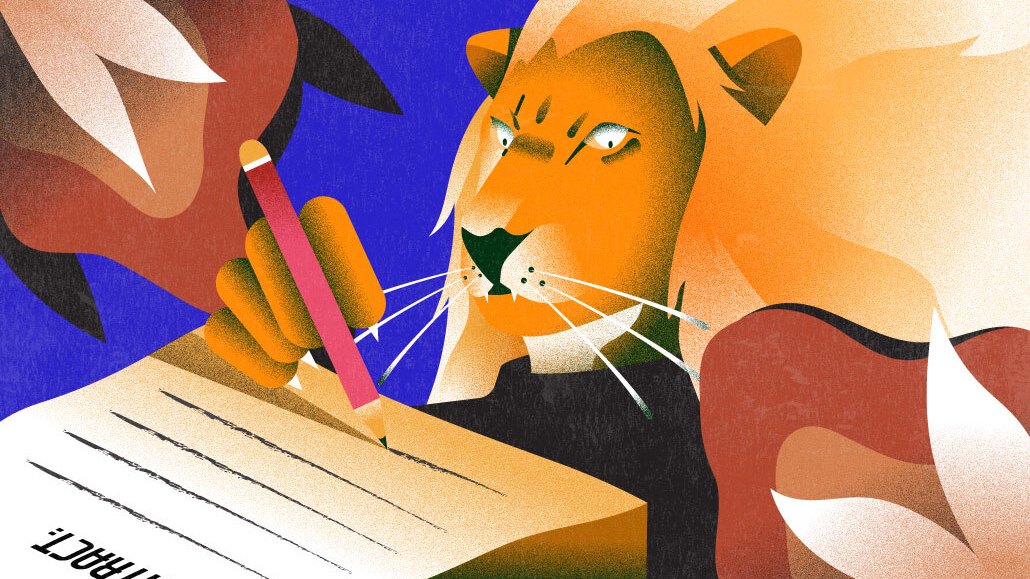Secure your place at the Digiday Media Buying Summit in Nashville, March 2-4
Brave browser brings new AI reading features to its privacy-focused chatbot

The chatbot race is moving further into the land of digital documents.
The privacy-focused browser Brave has added more ways for its AI assistant “Leo” to help users read PDFs, analyze Google Drive files and transcribe YouTube videos. Other features include analyzing code on GitHub and summarizing messages on Slack.
When reading pages in Google Docs and Google Sheets, Brave uses a technique called optical character recognition, which allows Leo to see whatever a user sees. For PDFs, it uses metadata to understand the semantic structure based on a file’s accessibility tree, which often are used by screen readers in devices to assist people with disabilities.
Brave, which is privately owned, is accessed from the browser’s sidebar. It also integrates with search so users can chat with Leo to learn more about a website topic, examine potential biases or explore different viewpoints. According to Brave CTO and co-founder Brian Bondy, the goal is to make Leo “the next best thing to speaking with the person that wrote the article and being able to ask questions about it.” Brave was co-founded by Brendan Eich, who also invented JavaScript and co-founded Mozilla.
“Brave has always been a user agent,” said Bondy. “It’s like a client-side software that’s working for the user and not for the server operator. But the goal with Leo is basically just to give the user a more intimate view of an article that they’re reading or any content that they’re reading.”
After originally training Leo on Meta’s open-source Llama AI models, Brave switched in January to models from Mistral AI, a French AI startup founded by former Meta and Google researchers. According to Bondy, using Llama 2-13-B had a higher rate of hallucinations than Mistral’s Mixtral 8x7B. He added that Brave’s in the process of integrating Brave search behind the scenes, which could help fact-check Leo’s answers and “steer it in the right direction.”
Leo isn’t as famous as the likes of ChatGPT, Copilot and Gemini. But Brave, which debuted its bot last November, has a number of privacy features for Leo that might appeal to privacy-conscious users. While Leo’s only available on desktop for now, the company says a mobile version for Android is coming “very soon,” and then after that for Apple’s iOS.
Brave also is missing something else other chatbots have — It doesn’t use targeted ads. That’s by design, which could be appealing for some users that don’t want to worry about being tracked by Meta, Google or Microsoft.
“We’re not actually training models from scratch,” said Bondy. “We’re just connecting users to existing best class models that we can get access to. We’re not in the game of data collection and things like that.”
However, that doesn’t mean Brave isn’t considering ways to add ads into Leo. According to its roadmap for Leo, the company “may offer a privacy-preserving ad-supported option” for people who don’t want to pay for a subscription version. It also could add ways for the model to help users “help users make purchasing decisions” based on contextual information.
If someone wants to use other AI models — for example Anthropic’s Claude Instant — Brave provides access via API but hosts it behind a reverse proxy. That way, IP addresses are removed and questions can be submitted anonymously to the chat server. Brave also says personal data isn’t stored by an AI model or any third-party providers.
Companies like OpenAI have recently added ways for ChatGPT to remember conversations. However, Leo’s answers are deleted after they’re sent and conservations aren’t saved in Brave’s servers. Instead, Brave is looking for alternative privacy-conscious ways to store conversations. For example, Bondy said it could consider adding offline storage, preloading large language models with relevant information, and preloading AI assistants like Leo with structured information.
Brave wasn’t alone in its efforts this week. Other tech companies also added new features for analyzing documents with the help of chatbots. On Tuesday, Adobe added a new AI assistant to Acrobat and Reader for generating summaries, analyzing documents and finding answers. A day later, Google announced plans to bring its enterprise tools from Duet AI under its Gemini umbrella as Gemini Workspace, as it debuted a new open-source AI model called Gemma.
“Generative AI offers the promise of more intelligent document experiences by transforming the information inside PDFs into actionable, knowledge and professional-looking content,” Abhigyan Modi, svp of Adobe’s Document Cloud, said in a blog post about the updates. “PDF is the de facto standard for the world’s most important documents and the capabilities introduced today are just the beginning.”
More in Media

From feeds to streets: How mega influencer Haley Baylee is diversifying beyond platform algorithms
Kalil is partnering with LinkNYC to take her social media content into the real world and the streets of NYC.

‘A brand trip’: How the creator economy showed up at this year’s Super Bowl
Super Bowl 2026 had more on-the-ground brand activations and creator participation than ever, showcasing how it’s become a massive IRL moment for the creator economy.

Media Briefing: Turning scraped content into paid assets — Amazon and Microsoft build AI marketplaces
Amazon plans an AI content marketplace to join Microsoft’s efforts and pay publishers — but it relies on AI com stop scraping for free.







